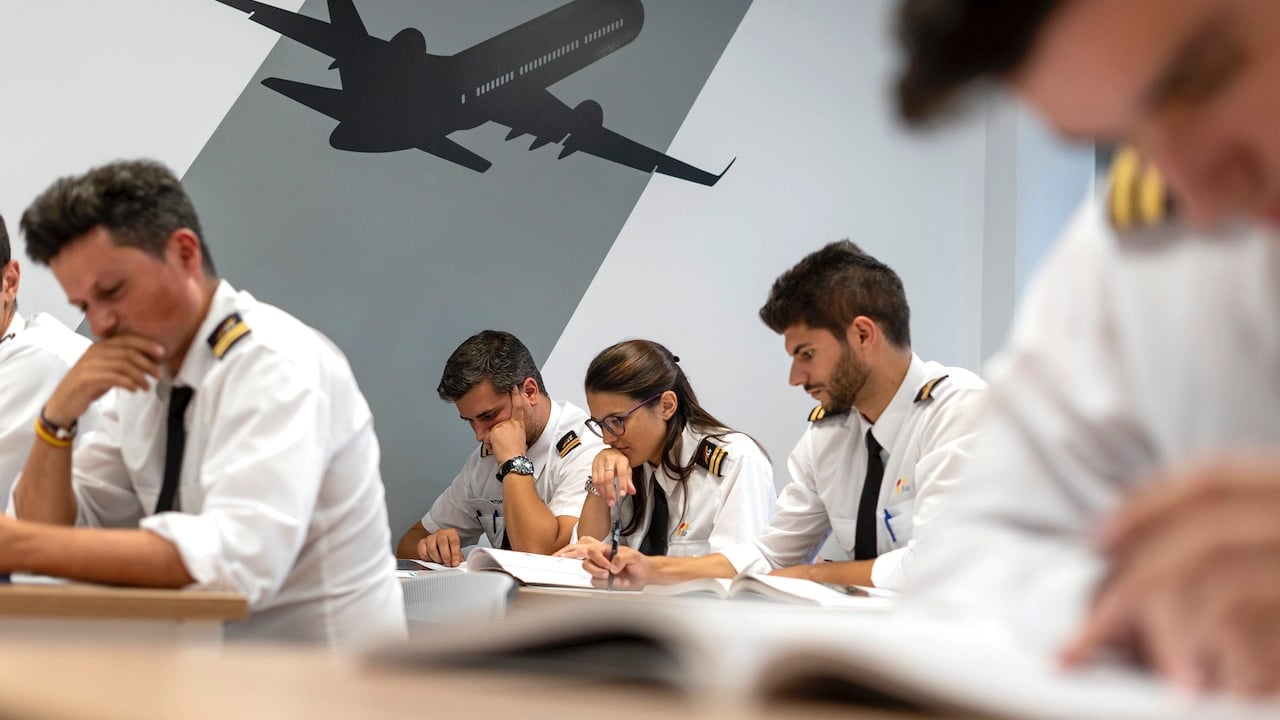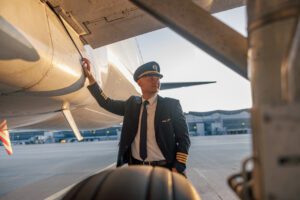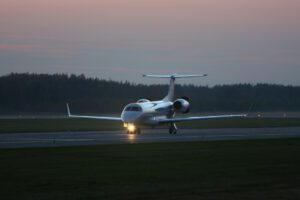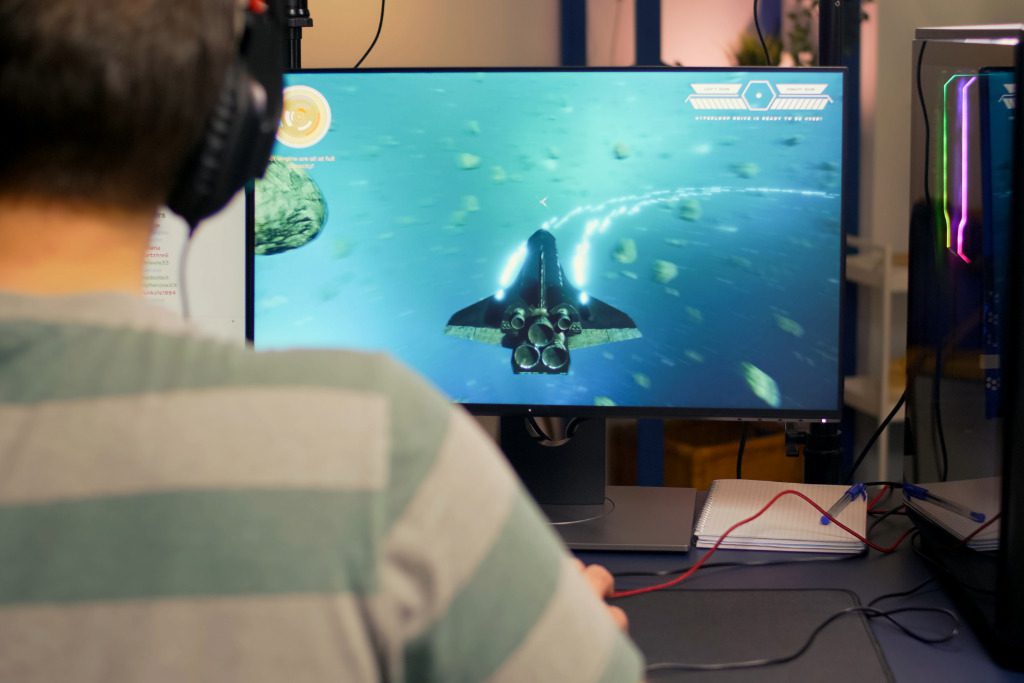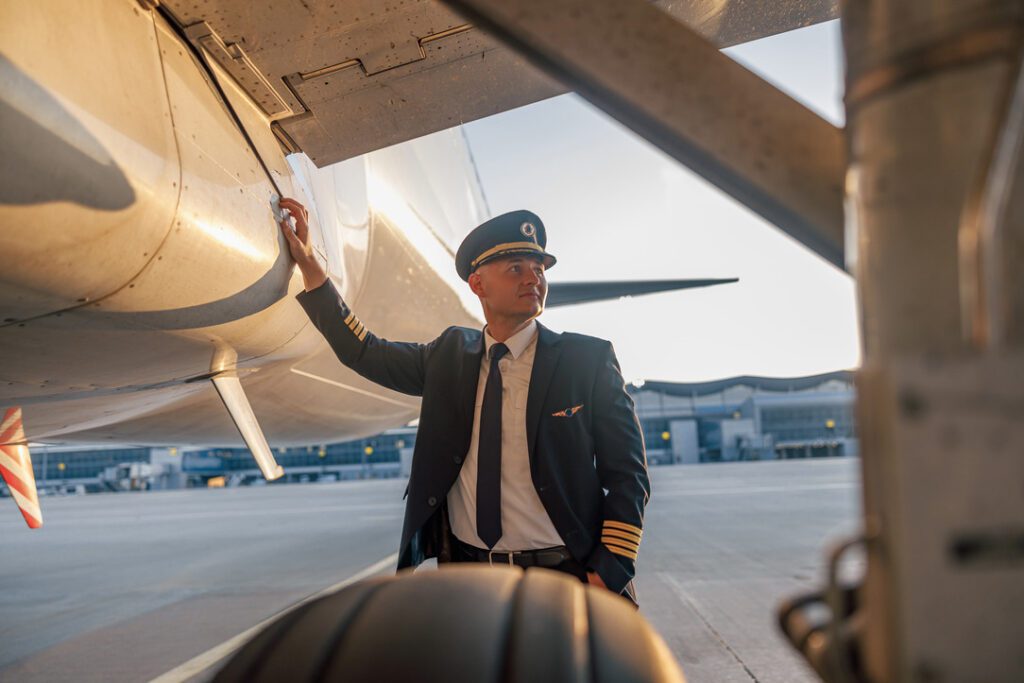13 ATPL subjects are covered in ground school training, each of which aims to educate you in particular set of abilities, know-how, and systems that you’ll need as a commercial pilot.
Air Law
For aviation activities to be safe and lawful, air law and regulations are essential. A variety of topics related to aviation law are studied by ATPL candidates, such as international laws, airspace classifications, aviation regulations, and pilot and aircraft certification processes. They gain knowledge of the functions of aviation authorities as well as the laws governing crew licensing, aircraft maintenance, and flight operations.
The exam duration is 1 hour with 44 questions.
Aircraft General Knowledge
ATPL holders must possess extensive understanding of aircraft systems and operations. Among the advanced systems and elements introduced to the candidates is the airframe, powerplant, avionics, and classic interior systems of the commercial aircraft. They acquire practical understanding of complicated systems like the autothrottle, fly-by-wire system, and advanced navigation as well as communication systems. It’s also essential to comprehend the capabilities, constraints, and emergency protocols of aircraft.
The exam duration is 2 hours with 80 questions.
Communications
When interacting with air traffic control, communications encompasses all the necessary information you’ll require to know, such as pertinent weather information, distress and urgency protocols, and basic operating procedures.
The exam duration is 1 hour with 34 questions.
Flight Planning and Flight Monitoring
Candidates for the ATPL must be skilled in long-haul flight planning and monitoring. They pick up sophisticated methods for performance estimates, weather analysis, fuel management, and route planning. High-altitude operations, maritime navigation, lengthy diversion planning, and the selection of an alternate airport are among the topics covered. In-flight emergency protocols and contingency planning are also studied by candidates.
The exam duration is 2 hour with 42 questions.
General Navigation
Operating in complicated airspace systems requires ATPL holders to possess advanced navigational abilities. Using a combination of radio navigation aids, satellite-based systems (like GPS), and inertial navigation systems, candidates study advanced navigation techniques. They gain knowledge of international navigation regulations, air traffic control protocols, and airspace classifications. Candidates also practice oceanic operations and long-range navigation skills.
The exam duration is 2 hours 15 minutes with 55 questions.
Human Performance and Limitations
In order to conduct safe and successful airline operations, human factors must be taken into consideration. ATPL candidates obtain knowledge on physiological and psychological factors including but not limited to stress, fatigue and situational awareness, which are important in the overall performance of a pilot. They research methods for controlling workload, coming to wise conclusions, and reducing the possibility of human error. To promote effective communication and cooperation in the cockpit, the principles of crew resource management (CRM) are emphasized.
The exam duration is 1 hour 30 minutes with 48 questions.
Instrumentation
It’s important that ATPL holders are skilled in the use of aircraft instruments, for example when flying under IFR or in poor weather conditions. ATPL exams also need candidates to learn the fundamentals as well as the workings of various aircraft instruments that include engine instruments, autopilot, primary flight displays (PFD) and navigation displays (ND). Practical skills are also acquired which involve the use of cockpit displays and navigational aids in relation to situational awareness, instrument interpretation and correction of instrument errors.
The exam duration is 1 hour 30 minutes with 60 questions.
Mass and Balance
Knowledge of the aircraft weight and balance is important for safe and efficient flight operations. Candidates for the ATPL program learn mass and balance concepts, including but not limited to weight distribution, center of gravity and loading calculations. They also learn how fuel burn, weather, the loads of passengers or cargo and other factors influence the performance and stability of an airplane. Additionally, candidates learn how to calculate weight and balance and make sure that aircraft constraints are followed.
The exam duration is 1 hour 15 minutes with 25 questions.
Meteorology
Given that the weather significantly affects airline operations, it is necessary for ATPL aspirants to interpret complex weather forecasts and data accurately. They get into advance topics in meteorology including the pressure systems, the jet streams, the air stability as well as other weather dynamics such as turbulence, icing, and thunderstorms. In order to plan and route their flights intelligently, candidates learn to examine weather models, satellite photos, and charts.
The exam duration is 2 hours with 84 questions.
Operational Procedures
This topic will explain to you the many practices and regulations which you, or rather the pilot (including the crew), should know before a flight even when some operational procedures would depend on the classification of the airplane or airline.
The exam duration is 1 hour 15 minutes with 42 questions.
Principles of Flight (Aeroplane)
You will get to know about the forces that act on an aircraft in flight like lift, drag, thrust, weight etc. in principles of flight.
The exam duration is 1 hour 30 minutes with 46 questions.
Performance (Aeroplane)
One of the harder ATPL sections is performance as it teaches you about an aircraft’s behavior at various flying stages. It will be required of you to perform calculations for takeoff and landing and to interpret graphs for every phase of the flight.
The exam duration is 2 hours with 45 questions.
Radio Navigation
Operating in complicated airspace systems requires ATPL holders to possess advanced navigational abilities. Using a combination of radio navigation aids, satellite-based systems (like GPS), and inertial navigation systems, candidates study advanced navigation techniques. They gain knowledge of international navigation regulations, air traffic control protocols, and airspace classifications. Candidates also practice oceanic operations and long-range navigation skills.
The exam duration is 1 hour 30 minutes with 66 questions.
Conclusion
In conclusion, the 13 ATPL subjects provide future pilots with the essential knowledge and skills for safe, efficient flight operations. From aircraft systems and navigation to meteorology and human performance, each subject plays a crucial role in preparing candidates for the complex demands of commercial aviation. The comprehensive training ensures pilots are well-equipped to handle the challenges of the skies and maintain the highest safety standards. You can also read about the ATPL exams ranked by difficulty (part 1 and part 2).

